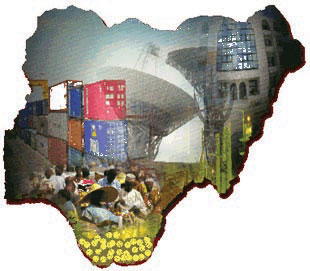
By Obadiah Mailafia
LAST week, we made the point in this column that ours is a land suffused with energy and talent but remain an abysmally mediocre nation. Our existential reality of collective dysfunction and sub-optimal performance simply does not correlate with our gene-pool or our embarrassment of natural riches. Our problem centres on a combination of wrong policy choices and a parasitic and destructive power elite that are bereft of any vision of national purpose or destiny.
By our talents, natural resource endowments, size and population, we are meant to be city set on a hill – a light unto the nations. But we cannot fulfil that vocation until we harness our talents for the reconstruction of our people. At the heart of this new development paradigm is commitment to science, research and innovation.
A review of countries by R & D expenditure shows a clear correlation between investment in knowledge and national prosperity. It is not for nothing that the top 10 richest countries by – USA, China, Japan, Germany, India, South Korea, France, UK, Russia and Brazil — are also those that have invested heavily in R & D. The USA spends an annual $474 billion (2.742% of GDP) on research. China spends $409 (2.1% of GDP); Japan $180 billion (3.58% of GDP); Germany $109 billion (2.869% of GDP), South Korea $10 billion (4.3% of GDP) and Brazil $35.4 billion (1.15% of GDP).
Even among our comparators in the emerging world, Nigeria fares rather abysmally. We spend a paltry 0.20% of our GDP on research and innovation, amounting to a mere US$300 million annually. Contrast this to the small city-state of Singapore which has committed more than $10 billion for research and innovation in the course of 2015-2020. Science, technology and innovation, STI, policy has evolved rather slowly in our country. The first policy was articulated in 1986. I was personally involved in that initiative as a young fellow of the National Institute for Policy and Strategic Studies, NIPSS, Kuru. The key policy thrust was to refocus science and technology to solve our multifarious development challenges. In 2001, the Olusegun Obasanjo administration provided new impetus for science and technology policy under the direction of an Adviser on the same sector, Professor Babatunde Thomas. Emphasis was placed on human resources, capacity building, organisational structure and international collaboration. The Vision 2020 project aiming to place Nigeria among the top 20 in the world economy provided additional impetus for science and technology policy. Policy makers became keenly aware that national competitiveness would be problematic without considerable investments in science and technology to boost productivity and generate wealth.
Historically, much of the research and scientific activity in our institutions of higher learning, research agencies and industrial firms bring little value because there is no enabling ecosystem and no proper framework for funding research, innovation and commercialisation activities. In rich as well as low-income countries, research is always a risky activity. The promise of success is not always guaranteed. This often means that government has to play a catalytic role not only in promoting research but also in mitigating the inevitable risks while providing the institutional support for commercialisation activities.
Funding agencies play a crucial role in the STI ecosystem: disbursement of funds; scholarships, grants and loans; funding support for infrastructure projects; dissemination of results; support for scientific publishing and journals; advocacy for STI; collection of data and statistics on STI; capacity building and training of researchers; provision of policy advice; setting research agenda and priorities; management of scientific collaboration and agreements; and coordination of the national STI system.
This is why some of us are excited about the National Research and Innovation Bill 2016 that provides a new legal framework for a new National Research and Innovation Council NRIC, and for the establishment of the National Research and Innovation Fund, NRIF. While the NRIC is envisaged as the governing and policy implementation council, the NRIF is mandated to administer the funding process.
Under the new arrangements, the National Research and Innovation Foundation will be responsible for resource mobilisation, planning disbursement and management of funding. Under the leadership of an Executive Secretary and a governing board, the Foundation is envisaged as the primary driver of research and innovation across the country. The agency is expected to take a strategic approach to identifying innovation ideas and concepts with considerable potentials and to fund them in a manner that generates value-added outcomes for national development. In so doing they are also expected to develop capacity among potential beneficiaries, broker collaborative efforts with local and international stakeholders, disseminate results and undertake strong advocacy for research, development and innovation. They are also expected to help develop markets (where they don’t exist) for innovative research products, monitor research projects, and build synergies for impactful approaches to research and innovation nationwide
Several challenges constrain the performance of STI councils in Africa. These include: weak coordination within the national STI infrastructure; weak partnerships and collaboration with industry; gaps in terms of formal funding mechanisms; lack of adequate and relevant legislation; poor implementation of policies; a rather marginal status for research councils; and most importantly, inadequate and non-sustainable public funding. Policy inconsistency remains the bane of national development in Nigeria as elsewhere on the continent. Equally important is the effectiveness of institutions and the prospects of the economy. Nigeria has the potential to rank among the most advanced technological-industrial nations in the 21st century. But we can only fulfil that promise when we build a globally competitive economy based on science and technology and innovation; an economy that offers opportunities for our people and optimises the energy and creativity of our youth in an atmosphere of progress, social justice and peace
Disclaimer
Comments expressed here do not reflect the opinions of Vanguard newspapers or any employee thereof.